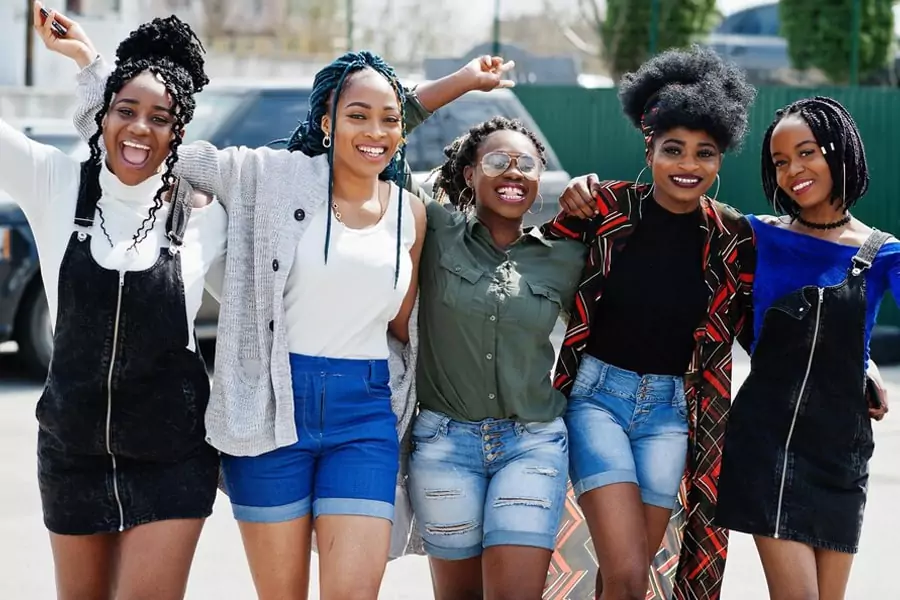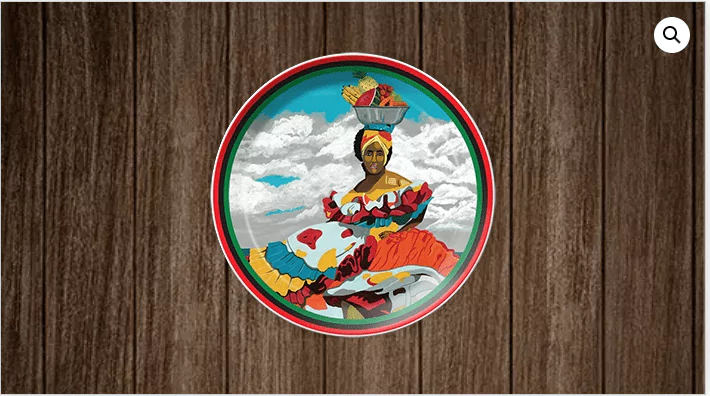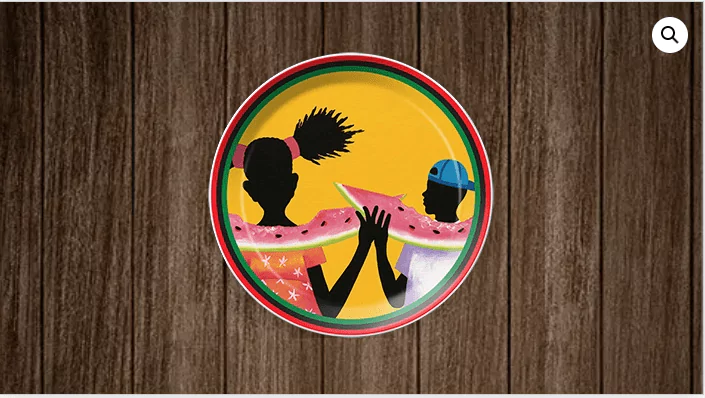Schedule Appointment
Schedule Appointment

African American holidays and celebrations are filled with profound cultural meaning and give a chance to look back at the history, strength, and community spirit that characterize Black American existence. From strong memorials such as Juneteenth to small family gatherings, these African American holidays and celebrations are not merely days on the calendar—they are times for remembrance, preservation of culture, and bonding. In addition to these time-honored practices, there are cultural expressions in art, cuisine, and community that all reflect the values and essence of African American culture.
In this blog, you’d get to learn a few of the key black American holidays, celebrations, and culture-specific dishes that celebrate African Americans, such as the Special Plates: First Generation College Student plate, Social Hour at the Barber Shop plate, The Fruit Ladies plate, Mary’s Hope – A Savior for the World plate, and Summer’s Dreams – Ice Cold Watermelon plate. Each plate tells a very different aspect of Black American life.
One of the most significant black American holidays in America is Juneteenth, also referred to as Freedom Day or Emancipation Day. Juneteenth is celebrated on June 19 each year and commemorates the day when Union troops entered Galveston, Texas, in 1865 and read the proclamation declaring all slaves free. This came two and a half years after President Abraham Lincoln’s Emancipation Proclamation, underlining the long wait for freedom by many African Americans.
Juneteenth is a day of both profound remembrance and joyful celebration. Communities come together for barbecues, parades, and festivals, all with the common theme of freedom and the struggle for equality. In homes across the nation, family members pay tribute to their ancestors through oral traditions, stories, and feasts.
Juneteenth celebrations include cultural plates that tell the story of African American history and the tastes of the community. A prime example is the Summer’s Dreams – Ice Cold Watermelon plate. Watermelon, a part of Black culture, originated in African heritage and represents the abundance of Black life, providing a cool link to family reunions and celebrations. This plate is a memory of hot summer days with happiness, family, and freedom.
Another significant holiday in the African American holidays and celebrations is Kwanzaa, which takes place from December 26 through January 1. Founded by Dr. Maulana Karenga in 1966, Kwanzaa is a pan-African celebration that celebrates unity, cultural pride, and family values. Kwanzaa is commemorated by lighting a candle holder known as a kinara, where each of the seven candles is symbolic of one of the seven principles of Kwanzaa: unity, self-determination, collective work and responsibility, cooperative economics, purpose, creativity, and faith.
While Kwanzaa celebrates African traditions through storytelling and shared meals, Mary’s Hope – A Savior for the World plate fits right into Kwanzaa. With this plate could be foods that represent hope, faith, and community building. The plate, like Kwanzaa itself, symbolizes the importance of sharing food and happiness with people around you while acting as a reflection of the values of African heritage and identity.
Martin Luther King Jr. Day is celebrated every third Monday in January, celebrating the life and work of the Civil Rights icon who struggled for racial justice and equality. It is both a day of service and a remembrance of what has been accomplished and what is yet to be achieved. On this day, numerous African American communities organize marches, public service activities, and educational programs to promote Dr. King’s message of peace, unity, and social justice.
In African American holidays and traditions, food is the focal point of most celebrations, and the Social Hour at the Barber Shop plate is a perfect choice for this holiday. The Barber Shop has been a location for essential conversations for many years, as customers exchange stories, advice, and community news. The Social Hour at the Barber Shop plate might include nourishing soul food fare that Black communities tend to share—fried chicken, cornbread, collard greens, and mac ‘n’ cheese—reminding us of community coming together, conversation, and solidarity building that are central to Dr. King’s message.

Black History Month, observed every February, is a whole month of celebrating the achievements, hardships, and contributions of African Americans throughout history. It is a time of remembrance of the legacies of prominent figures in history like Harriet Tubman, Malcolm X, Rosa Parks, and, as is to be expected, Dr. Martin Luther King Jr. Black History Month is occasioned by educational activities, public lectures, performances, and community events.
Cuisine traditions are sometimes integrated into Black History Month events as a gesture of respect for history. The First Generation College Student plate would be particularly appropriate in this case. The plate would be a symbol of the struggles of young Black Americans as they fight their way through the education system, surmounting barriers and reaching triumph. The plate may have plates for dishes that symbolize family and home-cooked meals that energize students throughout their educational paths, including gumbo, fried fish, and sweet potato pie. This plate represents the significance of education and perseverance, which define Black history.
Another important day in the African American holidays and celebrations is Emancipation Day, which is observed in many states, including Washington D.C. and Maryland, on April 16. It is a day to mark the end of slavery in the District of Columbia, which happened on April 16, 1862, nearly three years prior to the Emancipation Proclamation. It reminds us of the long fight for freedom, justice, and equality.
Emancipation Day celebrations typically include family reunions, public events, and festivals in which African American culture and history are celebrated. The Emancipation plate serves as an appropriate reminder of this holiday. This plate could feature dishes that reflect the strength and perseverance of those who fought for liberation and equality, such as slow-cooked meats, cornbread, and collard greens. These foods, passed down through generations, are symbols of survival, resilience, and the spirit of community.

The Fruit Ladies plate also fits into this theme. In many Black communities, fruit baskets and platters are popularly passed around at gatherings because they have come to symbolize abundance and community sharing. The plate may include fresh fruits such as peaches, grapes, and oranges, symbolizing the rich harvests representing freedom and unity, as well as the dominant women in the community—usually matriarchs—who see to it that these traditions of care and provision are passed on. Together, these plates celebrate the journey toward freedom and the enduring strength of African American families and communities.
Outside of these more significant black holidays, African American society values family, food, and community above almost everything else. Even casual gatherings for a birthday, family reunion, or block party are steeped in cultural significance. The food itself tends to narrate the story of African American survival, resourcefulness, and adaptability, as ingredients and recipes have been handed down over generations.

For instance, at a regular family gathering, you may find plates such as the Social Hour at the Barber Shop plate, which captures the group conversation and sense of belonging in the African American community. With dishes that are common in most Black homes, the food here brings to mind sitting around a table with family and friends and having meaningful conversations.

Another favorite plate is the First Generation College Student plate, which represents the victory of African American students who have battled through the odds of being the first in their families to go to college. This plate reminds us of the strength and will it takes to succeed academically and to provide for future generations.
African American holidays and celebrations are not merely time off from work or school but are essential to understanding the African American experience and the preservation of its rich heritage. Whether one celebrates Juneteenth, Kwanzaa, Martin Luther King Jr. Day, or Black History Month, these are the victories, struggles, and continuing struggle for equality that embody Black American existence.

Every plate, from Summer’s Dreams – Ice Cold Watermelon to The Fruit Ladies plate, is an expression of a unique aspect of Black history and culture, be it summer’s extraordinary delights or the heritage of strength and solidarity in the face of hardship. Sharing food, tradition, and narrative, African Americans continue to pay tribute to their heritage and ensure that generations to come will be connected to their past.
Honoring these holidays, be it through art, cuisine, or community, guarantees that the essence of African American culture lives on. As we sit down at the table, whether for a special occasion or a simple family dinner, these traditions remind us that our pride in our culture and our link to the past are always something to be celebrated.